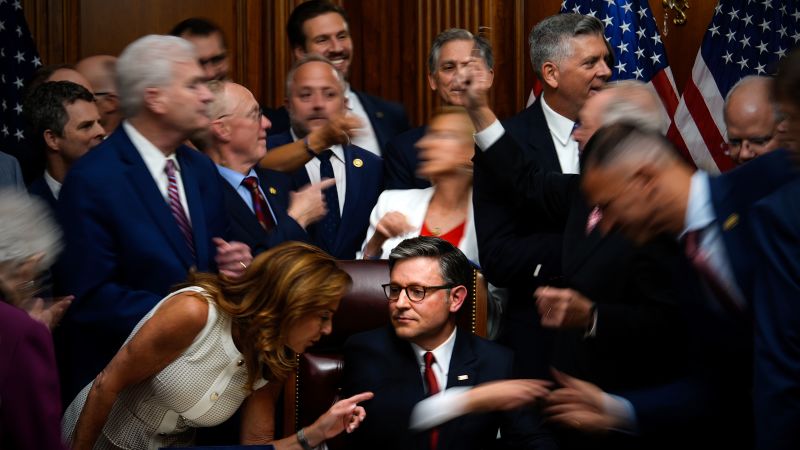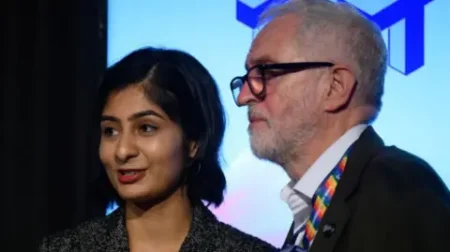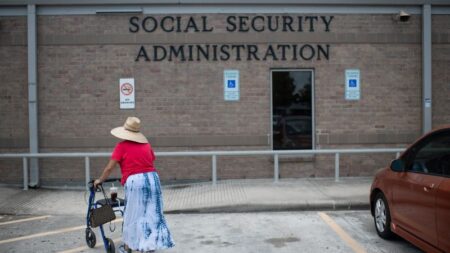In recent months, debates within the Republican Party have intensified, particularly concerning President Donald Trump’s sweeping agenda package that proposes significant cuts to Medicaid. This sweeping legislation is now on the verge of becoming law, eliciting alarm from numerous GOP members, who voice concerns about the impact these cuts will have on vulnerable populations.
Notable figures from the Republican contingent, such as North Carolina Senator Thom Tillis and Missouri Senator Josh Hawley, have referred to the cuts as “inescapable” and a “mistake,” respectively. Additionally, Nebraska Representative Don Bacon, who previously stated he would not support any legislation with cuts surpassing $500 billion, ended up endorsing the Senate’s nearly $1 trillion reduction in Medicaid, albeit reluctantly, due to other appealing tax breaks embedded in the bill.
As the details of the bill loom over Congress, the Democratic Party is keenly seizing upon these warnings from Republican legislators to strengthen their strategy in the upcoming midterms scheduled for November. Representative Jared Golden from Maine articulates a sense of déjà vu, likening the current situation to the political climate of 2018 when Medicaid cuts featured significantly in the party’s platform. With a strong affirmation of his stance, Golden emphasized, “I would never vote for these Medicaid cuts. Never,” highlighting dissent even with provisions tied to border security and military funding.
Poll results suggest that the Republicans face considerable challenges in garnering public support for their agenda. A Quinnipiac University poll conducted in June indicates that 53 percent of voters are opposed to the proposed cuts. Nevertheless, the GOP counters this narrative by framing the Democratic opposition as an obstruction to widely popular tax breaks for citizens, heightened funding for border security, and support for military enhancements. They assert that the Medicaid cuts largely affect able-bodied adults without dependents who do not fulfill work or education requirements set at 80 hours a month.
Speaker of the House Mike Johnson has touted the legislation as “the most comprehensive, complicated piece of legislation” passed by Congress in recent history. Trump himself has expressed his support for the bill during a public event in Iowa, suggesting opportunities for leveraging Democratic opposition on the campaign trail.
As the rhetoric heats up, GOP Representative Nicole Malliotakis from New York defended the measure vehemently, condemning Democratic adversaries as “liars” and accusing them of merely spreading fear. She justified the Medicaid work requirements, contending, “Nobody loses benefits if they choose.” Nonetheless, Democratic representatives insist that their message resonates stronger with the public, emphasizing the potential negative consequences of the legislation.
Democratic leaders, including Representative Brendan Boyle from Pennsylvania, foresee the outcomes of this legislative activity as pivotal for reclaiming a House majority. He relayed a conviction that the vote represents a turning point. Adding further weight to the argument, California Representative Ami Bera mentioned the implications for Republicans in swing districts, such as David Valadao from California, where a significant portion of the populace relies on Medicaid. The Congressional Budget Office estimates that nearly 12 million people could potentially lose health coverage due to the impending changes.
The magnitude of these proposed cuts—almost $1 trillion over a decade—arises from a prior expansion of Medicaid initiated during the Obama administration, which has been integrated across 40 states. Consequently, the repercussions of the legislation may not materialize immediately but could unfold gradually, with work requirement implementations slated for late 2026.
As anticipation builds ahead of the vote’s final passage, a remarkable advertising campaign surrounding the legislation has unfolded, compelling spending of over $35 million in June alone. Interest groups from both sides brace for an escalating public relations battle to shape perception and influence voter sentiment concerning the bill.
Political analysts have noted that the impact of Republican strategies will inevitably shape electoral outcomes, with Democratic strategist Jesse Ferguson forewarning constituents that voting outcomes will have tangible effects on their everyday lives. As groups such as Save My Care and Protect Our Jobs mobilize significant advertising resources, Republicans are readying themselves to counteract these pressures with messaging touting their successes in passing tax cuts and enhancing national security.
With various outside groups preparing to amplify their messages around these themes, a pivotal struggle for hearts and minds is underway, as both Democrats and Republicans grapple for control heading into the future elections. In this charged atmosphere, the reactions from constituents and lawmakers alike will play a vital role in shaping public opinion and the ultimate fate of this legislative endeavor. The stakes are high as both parties strategize to leverage the political landscape to their advantage, aiming to define the narrative as the nation heads toward the 2026 midterm elections.










